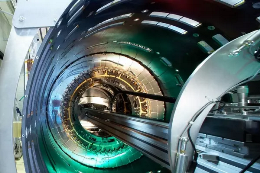The ATTRACT Consortium grants funding to develop a new hybrid detector

The call addressed researchers, entrepreneurs, and companies who developed breakthrough projects on pioneering imaging and sensor technologies. The project will develop a hybrid detector with a very high temporary resolution, close to 10 ps, even for a single photon, and will be participated by CERN.
The ATTRACT Consortium launched the call last August, searching for the 170 best ideas. The received proposals have been peer-reviewed by an Independent R&D&I Committee of top experts in the field of detection and imaging technologies. The selected proposals will receive €100,000 of seed funding each to develop the concepts further for one year. At the end of that period, the funded projects will then present their results in a Final Assessment Conference in Brussels. The first meeting will take place on 20 May, at the CERN headquarters in Switzerland, where the proposals and projects will be presented.
The ATTRACT Consortium is a research initiative born in August 2018. Funded by the European Union’s Horizon 2020 and participated by several institutions, it is a pioneering initiative aimed to bring together both the European’s fundamental research and the industry.
The main goal is to enhance the growth and potential of fundamental research in the development of breakthrough detection and imaging technologies, for both scientific and commercial use. The project also wants to promote a bigger return on Europe’s scientific investment, that will benefit both the economy and society, building bridges between the research infrastructures and the private sector.
ATTRACT is funded by the European’s Union Horizon 2020, and participated by the AALTO University; The European Organization for Nuclear Research CERN; the European Industrial Research Management Association EIRMA; the European Molecular Biology Laboratory EMBL; the ESADE Bussiness School; the European Southern Observatory ESO; the European XFEL, and the Institut Laue-Langevin.
For more information consult the ATTRACT Strategic Programme.
